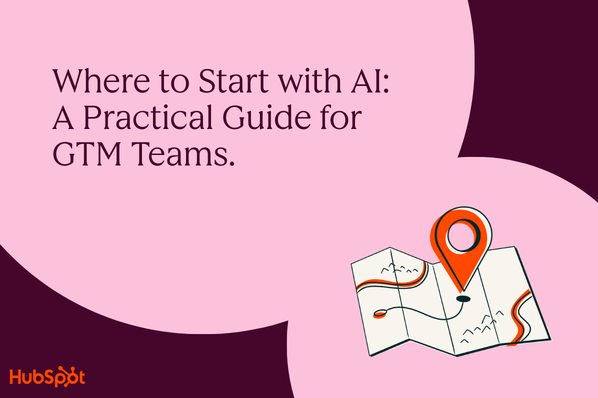By Adam Zoucha
The world is changing rapidly. Accounting teams and organisations are having to navigate changes in the areas of politics, economics, and technology at quite a pace. It can be hard to know where and when to invest, how to future-proof a business, and where the next challenge may come from.
But, as we edge closer to the end of 2023, there are signs of what 2024 may hold for the accounting profession. And, what will be important to accounting success in the New Year, namely: AI, people and talent, accounting technology, compliance and ESG.
Artificial Intelligence
It seems natural to start with AI, as it’s pretty much stolen the limelight throughout the past year. Like it or not, AI is transforming the way we work. While concerns remain about the use of artificial technology, when applied wisely, it can be a powerful ally to improve strategic thinking, strengthen understaffed teams and maximise employee potential.
So, what does AI have to do with accounting? As with all industries, while targeted artificial intelligence applications come to maturity, they are going to become vital to the success and viability of accounting organisations. A well-documented labour shortage within the accountancy sector presents an opportunity for AI to step in to process data, offer valuable insights and streamline everyday tasks. The increased efficiency frees up accountants’ time, so they can focus on complex financial analysis. We will continue to see accountants embrace AI tools, meaning they can be more strategic and focus on long-term organisational success.
To keep the industry as a whole afloat, amidst talent shortages and retention issues, accountants must strive for transformation and modernise across all fronts: financial, digital, and structural. Such a transformation can be elevated with the use of AI – not simply implementing it in limited use cases, but normalising widespread usage. Indeed, we may reach the point where businesses that don’t utilise AI in some way will be seen as ‘falling behind’ the competition. Consequently, CFOs will play a leading role in facilitating digital transformations – adding another layer to the accounting function’s already growing strategic significance and remit.
People and talent
The accounting skills shortage is, unfortunately, likely to worsen. According to FloQast data, a sizable proportion of accountants (53%) are prepared to leave their current employer if their roles and responsibilities don’t significantly change. Even if not all of them follow through, businesses in various industries could suffer greatly from such a migration. And the causes of this are clear, the same survey series found that 99% of accountants are burnt out, 60% struggle with work-life balance (doubting they can complete the work they’ve been assigned), and only 5% would rate their fulfilment in their job as an A+.
Business and HR leaders must collaborate to find solutions that will satisfy their accountants. These might be anything from implementing modern tools that use automation to eliminate mundane ‘bean counting’, to offering mental health support throughout the busiest times of the year, like tax season.
Accounting technology
Automation will continue changing how “traditional” accounting procedures are done in the coming year. Streamlining data entry, reconciliation, financial reporting, and compliance-related activities will all become crucial if accountants and their companies are to succeed. As technology takes on a more significant share of routine tasks, financial experts will be given the opportunity to pivot and contribute more meaningfully to company objectives. And, as the role of the finance professional evolves in this way, data-driven decision-making will be even more crucial.
This type of digital transformation has swept through numerous industries, and now accounting organisations are under pressure to achieve financial transformation through technology. For example, cloud-based software is becoming an essential component of accounting operations, as companies embrace a cloud-first strategy for scalability, flexibility, and innovation. As organisations integrate cloud-based tools and services into their core infrastructure, they will increasingly need to implement cloud-based security measures to bolster their financial transformation efforts.
Finance teams are likely to continue undergoing digitisation over the coming 12 months. Adapting a dynamic approach to financial transformation will put organisations one step ahead. Tools that advise on compliance roadblocks, financial preparation and strategic planning will ensure businesses are ready for the next phase of their growth journey.
Compliance, ESG, and IPOs
CFOs report fears of a greater risk of noncompliance, mostly due to concerns around a lack of strategy in their current compliance function, insufficient staffing and skills gaps in their teams. Not to mention cases of stalled technology implementation within existing processes throughout the organisation. As a result, CFOs must prioritise investment in compliance in 2024, especially as new reporting requirements, like the Corporate Sustainability Reporting Directive (CSRD) come into effect. Once live, 10,400 non-EU enterprises will be subject to CSRD compliance, as a third of these organisations are based in the United States. Achieving audit-ready, error-free reporting will be guaranteed for those who communicate their ESG story via sound data standardisation, collection and accuracy.
Compliance requirements will also be driven by a potential increase in IPO activity. With the inflationary needle now moving in the right direction, the IPO market is showing signs of promise and may continue a recovery into 2024. Organisations looking to IPO will need to supercharge their processes. Strong compliance processes are required to stand up to investor scrutiny. And, not only does compliance help businesses avoid corporate and personal liability, but it also enhances investor confidence by demonstrating a commitment to transparency and accountability.
Looking ahead
As we anticipate the trends that will shape the accounting landscape in 2024, it is evident that adaptation and innovation will be paramount for success. Artificial intelligence is no longer a ‘nice to have’, but a necessity to address labour shortages and boost strategic thinking. The looming talent crisis underscores the need for tech investment and employee well-being. And, automation and digitisation will redefine traditional procedures, enabling finance professionals to contribute more meaningfully to company objectives.
For CFOs, they must prioritise compliance, ESG and IPO readiness, recognising the crucial role of robust processes in navigating regulations and instilling investor confidence. In the face of challenges, strategic foresight and a commitment to transformation will unlock opportunities for sustained success in the evolving business environment.
About the Author
 Adam Zoucha is CPA certified, serving as Managing Director of EMEA for FloQast to improve companies’ abilities to close the books faster without hassle. With experience working at Deloitte & Touche, he now heads a team responsible for all client activity in EMEA.
Adam Zoucha is CPA certified, serving as Managing Director of EMEA for FloQast to improve companies’ abilities to close the books faster without hassle. With experience working at Deloitte & Touche, he now heads a team responsible for all client activity in EMEA.











